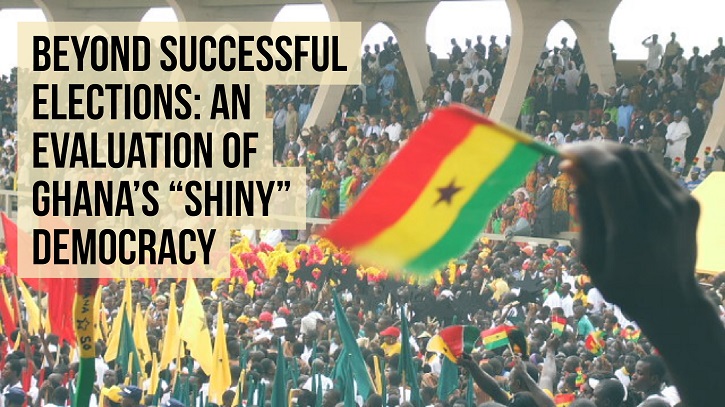Ghana has had seven peaceful presidential and parliamentary elections since its transition from military rule in 1992. Successive Ghanaian governments have managed to maintain a fairly stable economy with some semblance of rule of law, and the country is recognized as one of the strongest democracies in sub-Saharan Africa. Compared to the records of some of its neighbors, Ghanaian democracy is a strong performer, yet key challenges remain. Endemic corruption, high unemployment, and weak social services are eroding trust in the system, leaving some to question whether democracy can deliver development and economic growth. An increasing number of citizens are beginning to view the Chinese and Rwandan models of governance in a more favorable light.

Credit: Twitter
At a forthcoming forum, popular radio host Nana Ama Agyemang Asante (right) will discuss the shortcomings of Ghana’s democracy and argue that successful elections, economic stability, and peace should not be the only criteria of a functioning democracy.
Featuring:
- Nana Ama Agyemang Asante, Reagan-Fascell Democracy Fellow
- With comments from:
- Dave Peterson, Senior Director of Africa Program, National Endowment for Democracy
- Moderated by:
- Sally Blair, Senior Director of Fellowship Programs, National Endowment for DemocracyRSVP
- January 17, 2018
03:00 pm – 04:30 pm








